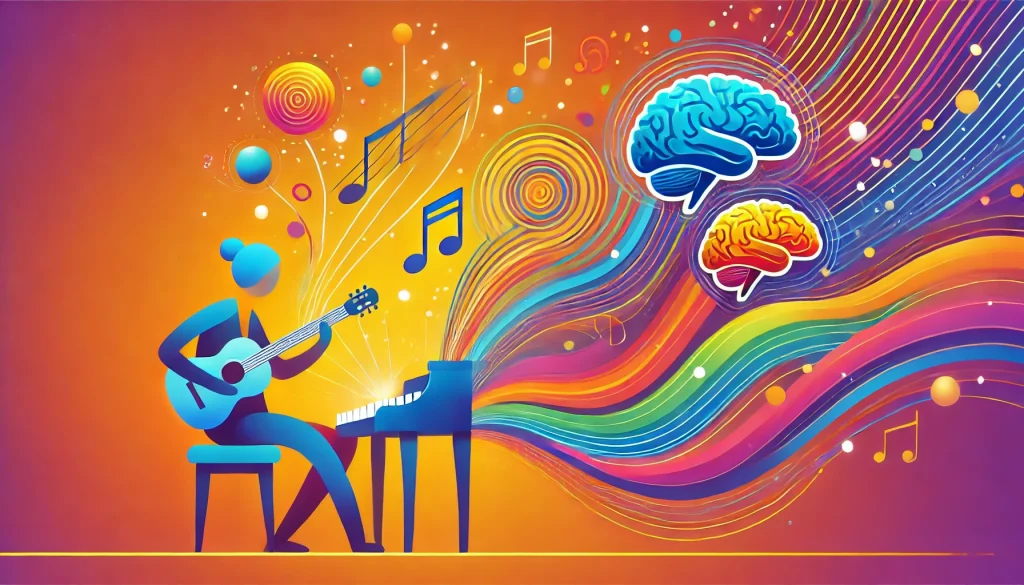
Have you ever wished you could boost your brainpower while having fun? Learning to play an instrument is one of the best ways to exercise your mind, and it’s more effective than many other mental activities. It strengthens memory, sharpens focus, and even reduces stress—all while letting you express yourself through music.
Music Engages the Whole Brain
Unlike passive activities like watching TV, playing an instrument activates multiple areas of your brain at once. When you read sheet music, your brain processes symbols and translates them into hand movements. At the same time, your ears listen for pitch and rhythm, while your memory recalls what to play next. This full-brain workout improves cognitive function and strengthens neural connections, making your brain sharper over time.
Boosts Memory and Problem-Solving Skills
Musicians have stronger memory skills than non-musicians because playing an instrument forces you to recall notes, chords, and patterns. Over time, this strengthens your ability to remember information in other areas of life, like studying for a test or recalling important details at work.
Beyond memory, playing music improves problem-solving skills. If you hit a wrong note, you have to think quickly and adjust. If a rhythm is tricky, you break it down and practice until you master it. These small challenges train your brain to solve problems efficiently, a skill that benefits you far beyond the music world.
Enhances Focus and Discipline
Have you ever struggled to stay focused on a task? Playing an instrument requires concentration, whether you’re reading music, keeping time, or coordinating both hands. Practicing regularly strengthens your attention span, making it easier to stay focused in other areas of life, such as work or school.
It also teaches discipline. Progress in music doesn’t happen overnight—it takes patience and consistent effort. The more you practice, the more you see improvement, reinforcing the value of hard work and persistence.
Reduces Stress and Boosts Mood
Music has the power to change how you feel. Playing an instrument can reduce stress by lowering cortisol, the hormone responsible for anxiety. It also triggers the release of dopamine, the “feel-good” chemical that lifts your mood. Whether you’re strumming a guitar, tapping on a piano, or playing the violin, the act of making music can help you unwind and feel happier.
Keeps the Brain Sharp as You Age
As people grow older, cognitive decline becomes a concern. But research shows that playing an instrument can help keep the brain sharp. Musicians often have better memory, faster processing speeds, and stronger problem-solving abilities even later in life. Learning an instrument at any age can be a powerful tool for keeping your mind young and active.
Start Your Brain Workout Today
The best part about learning an instrument is that it’s never too late to start. Whether you’re picking up a new hobby or revisiting an old passion, every note you play gives your brain a workout. So grab that guitar, sit at the piano, or pick up a violin—you’re not just making music, you’re strengthening your mind.
Now’s the perfect time to start your musical journey. Your brain will thank you!

